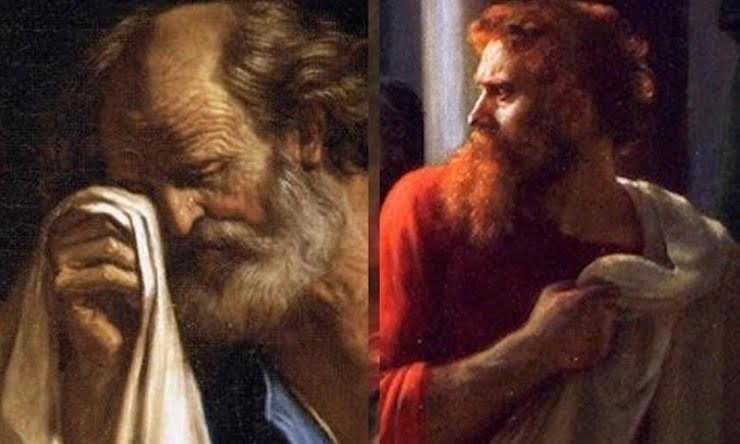Holy Tuesday. In each of us there is both Judas and Peter
Today's Gospel already takes us to the Upper Room. Jesus, always aware of the events to come, consistently strives to realize them. The scene takes place during a meal, "at the table".
The reality of the meal, the table, has been associated for centuries with closeness, kindness, family. You do not sit at the table with the first person you meet, but a certain intimacy and trust are required. And so it is in this scene: Jesus eats with his closest disciples, with those whom he formed, who listened to his words and witnessed his deeds. And it is in this group that Judas, the traitor, is present. Jesus keeps him with him until the last possible moment, wanting to give him a chance. He treats him as a friend, knowing exactly the intent of his heart.
Jesus is the same for every person, for each one of us. He does not cease to keep us close to him, he gives himself to us in the Eucharist, and we always leave him anew, looking for an alternative of happiness outside of Christ. And sometimes we feel like Judas, like those who betray the Lord's love. But we return to Him, rising from our falls, accepting God's forgiveness.
Peter's attitude should also be close to us. The first apostle, in "his" style, declares to Jesus that he will follow Him to the end, even unto death. And Christ dampens his zeal, announcing his imminent cowardice.
How many times do we see how life makes us real, how far is it from our declarations? Sometimes a fall will simplify us so much that we no longer pass sentences so easily and do not pull out recipes for happiness in someone's life. We learn frailty, awareness of our own sinfulness. We learn not to rely on ourselves and to look mercifully on our neighbors.
In John Steinbeck's book "East of Eden", there is a discussion between the servant Li and the main character Adam about human freedom. The Chinese man ponders the story of Cain and Abel. In the monologue of the old servant, one Hebrew word "timshel" is mentioned – which is a specific answer to the question about the border of evil in human life. This one word taken from the Bible – "timshel", meaning "you can" – gives the right to choose. It says: the road is open. It transfers responsibility to man. Because if "you can", it also means that "you can not". God respects our freedom. He always leaves us with the final choice. If we "can do something" wrong, we can also "not do" it. This is what Judas' attitude teaches us. At any moment he could give up and return to faithfulness to Jesus.
In each of us there is both Judas and Peter. Christ does not give up on us, he remains with us at the "table" and patiently leads us to maturity, so that we can love him above all things and draw strength from him. Do not change this love into "small" ones and, in His power, keep the promises and declarations made. Peter, when he recognized his powerlessness and experienced the Lord's forgiveness, was already a different man, ready to follow Christ to the end... to Rome... to the Cross.
Thoughts from Saint Faustina: Jesus said: I am pleased with your efforts, O soul aspiring for perfection, but why do I see you so often sad and depressed? Tell Me, My child, what is the meaning of this sadness, and what is its cause?
Lord, the reason for my sadness is that, in spite of my sincere resolutions, I fall again into the same faults. I make resolutions in the morning, but in the evenings I see how much I have departed from them. You see, My child, what you are of yourself. The cause of your falls is that you rely too much upon yourself and too little on Me. But let this not sadden you so much. You are dealing with the God of mercy, which your misery cannot exhaust. Remember, I did not allot only a certain number of pardons. (Diary 1488)
fr. george


